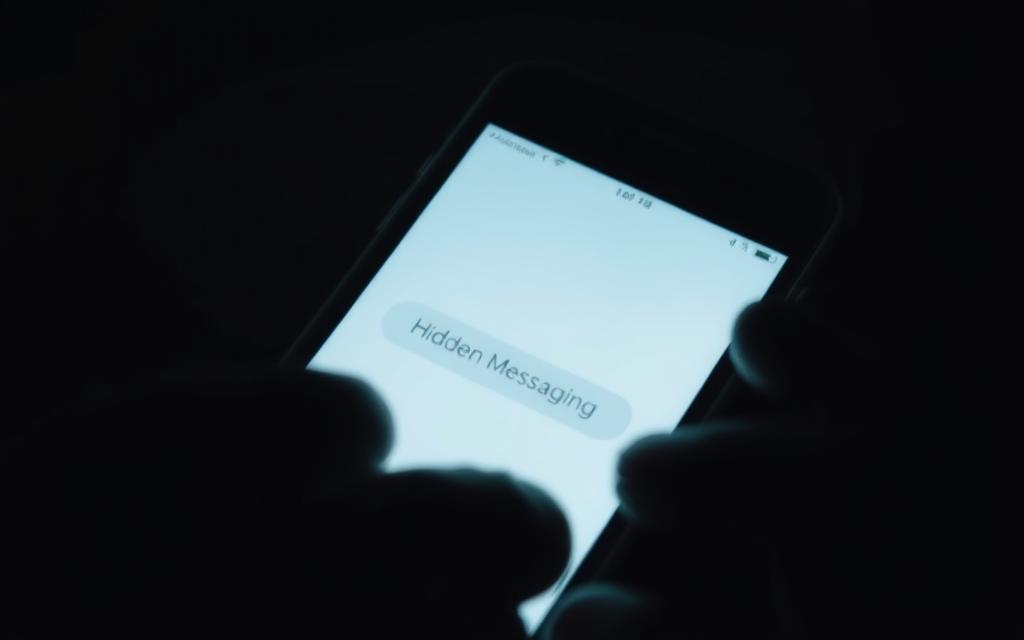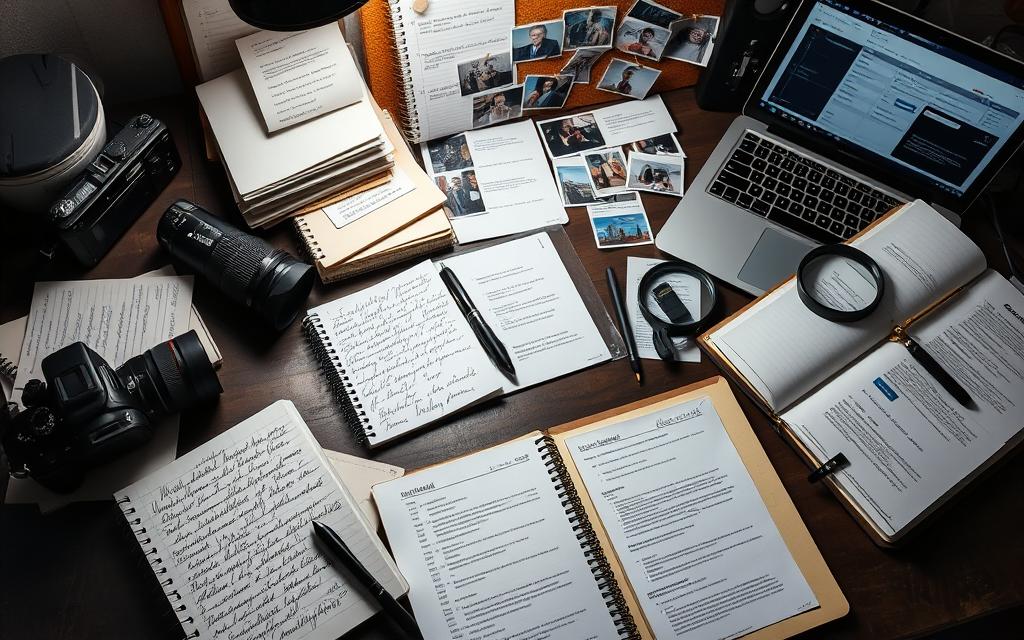Ever thought your partner might be cheating, but didn’t know how to check without being too nosy? Dealing with infidelity is tricky and private. This guide will show you how to find out the truth quietly, without hurting your relationship too much.
Figuring out if someone is cheating is a sensitive task. What if your worries are wrong? This guide will give you the tools to find out quietly. You’ll learn how to do it without breaking the law or causing more damage.
Starting this journey means understanding it’s not always easy. Cheating can hurt a lot emotionally and legally. Knowing the effects of betrayal, why evidence matters, and the legal side will help you handle this tough time.
Understanding the Impact of Infidelity
Infidelity can break the trust and intimacy in a relationship. It leads to hurt, anger, and a deep sense of betrayal. Gathering evidence quietly is key to handle the situation carefully.
Emotional Consequences of Betrayal
Infidelity’s emotional effects are severe. About 65% of marriages are touched by it. The betrayed partner may feel grief, shame, and a loss of self-esteem.
These feelings are hard to deal with. That’s why gathering evidence is so important.
The Importance of Gathering Evidence
Gathering evidence quietly is crucial after infidelity. It helps understand the betrayal’s extent and its impact. This info guides the decision-making process.
Legal Implications of Infidelity
Infidelity’s emotional impact is big, but its legal side is also important. Laws about property, custody, or criminal cases vary. Knowing these laws helps navigate the situation better.
Dealing with infidelity’s emotional, practical, and legal sides is key. It helps make informed decisions and find healing support.
Common Signs of a Cheating Partner
Spotting infidelity red flags in a relationship is key. Small changes in how someone acts, talks, and lives can hint at cheating behaviors and suspicious activities. Being alert to these signs can help fix problems in the relationship.
A sudden drop in a partner’s voice pitch might mean they’re cheating, studies show. Also, money troubles or secrets about spending can be signs of cheating behaviors.
Changes in how someone looks or dresses, like dressing nicer than usual or wearing new styles, might mean they’re trying to impress someone else. Also, avoiding, showing no interest, or accusing you of cheating without reason are suspicious activities to look into.
Other infidelity red flags include changes in how you talk, unexplained schedule changes, and new habits or routines. Cheaters often know how to spot lies, so watch for words not matching actions or defensiveness when asked about these changes.
By being watchful and recognizing these signs of a cheating partner, you can tackle any relationship issues early. Remember, dealing with infidelity early is vital for your relationship’s health.

Behavioral Changes That Signal Infidelity
Watching your partner’s actions can tell you a lot. Look for changes in how they talk to you, like being secretive or avoiding conversations. Also, notice if they start spending more time alone or missing plans without explanation.
Changes in how they look or their interest in fitness might also raise a red flag. If they pull away emotionally or don’t match their words with actions, it could mean trouble.
Changes in Communication Patterns
Notice if your partner starts being more secretive or defensive. If they don’t want to talk about the future, it might mean they’re hiding something. Also, if they’re suddenly protective of their phone or change how they interact with you, it could be a sign of partner behavior changes.
Unexplained Schedule Changes
Be wary of sudden changes in their schedule. If they start spending more time alone or have unexplained absences, it could be a sign of suspicious routines. This might mean they’re involved in something outside the relationship.
New Personal Habits and Routines
Pay attention to any new habits your partner develops. If they suddenly care more about their looks or fitness, it could be a sign they’re trying to impress someone else. This might indicate partner behavior changes.
By noticing these changes, you can spot potential signs of infidelity in your relationship.
Digital Evidence Collection Methods
Digital evidence is key in uncovering cheating. Cheaters often leave digital clues. By looking into your partner’s online habits, you can find important online cheating evidence and digital infidelity traces.
Watch for too much social media use, secret browsing, and burner phones. Cheaters might also lock down their devices more. Look for odd messages, new contacts, or changes in how they talk to you.
- Analyze your partner’s digital footprint for clues
- Monitor social media activity and online behavior patterns
- Investigate the use of burner phones or secondary email accounts
- Note any sudden increase in password protection on devices and apps
- Uncover unexplained messages or interactions with new online contacts
By looking closely at digital clues, you can learn a lot. This tech-based investigation can show you digital infidelity traces and online cheating evidence. It helps you understand your relationship better.

Discreet Ways to Gather Evidence of Infidelity
When you suspect your partner might be cheating, finding evidence quietly is key. But, you must do this carefully to respect their privacy. Here are three ways to gather evidence without being obvious:
Monitoring Financial Records
Unusual expenses or money taken out without explanation could mean trouble. Look closely at your bank statements, credit card bills, and other financial papers. See if there’s anything odd.
Observing Social Media Activity
Watching your partner’s social media can tell you a lot. Notice if they start talking to new people or change how they use social media. This could be a sign of something.
Tracking Communication Patterns
Changes in how your partner talks to you might mean they’re hiding something. Watch for more texts or calls at weird times. These could be signs of cheating.
It’s important to be careful and respectful when looking for evidence. You want to find out the truth without hurting your relationship. Remember, trust and respect are key.
Professional Investigation Options
When you suspect your partner might be cheating, getting a private investigator can help. These experts have the skills and tools to find out the truth. They offer many services to help confirm or deny cheating.
Private investigators use methods like surveillance, background checks, and digital investigations. They also do GPS tracking (where it’s legal), interviews, and undercover work. They do all this quietly and carefully. Their knowledge is key in handling the tricky parts of an infidelity case. They make sure everything is done legally and ethically.
The cost of hiring a private investigator for infidelity cases varies. It can be between $50 and $150 an hour. There might also be extra costs for things like travel, parking, or equipment. Some services come with a flat fee or a retainer, which can cost from $500 to thousands of dollars. It’s important to think about the cost and make sure the investigator follows the law.
A professional investigation can give you the clear facts you need to decide about your relationship. This is very important in cases like divorce or fighting for custody of a child. A private investigator can help you through this tough time with care and privacy.

- Private investigators use many techniques, like surveillance and digital investigations, to find evidence quietly.
- The cost of an investigation can vary, usually between $50 and $150 an hour, with extra costs for things like travel.
- It’s very important to follow privacy laws. Private investigators must be respectful, sensitive, and professional in their work.
- Getting a professional investigator can give you clear facts, which is very helpful in legal cases about cheating.
Technology-Based Surveillance Methods
Technology can help uncover if someone is being unfaithful. Tools like GPS tracking, phone monitoring apps, and digital footprint analysis can reveal where someone goes and what they communicate. These methods can show if someone is being dishonest.
GPS Tracking Considerations
GPS tracking can track a partner’s location. But, it’s important to think about the legal and ethical sides. Using GPS to track a cheating partner should be done with care. Make sure you follow privacy laws and get the right consent.
Phone Monitoring Applications
There are many phone monitoring apps that claim to find cheating. These apps can see text messages, emails, and social media. But, remember to respect privacy and get consent before using them.
Digital Footprint Analysis
Looking at a partner’s digital footprint can show a lot about their online life. Private investigators use special techniques to find out about someone’s online activities. They can also check devices for signs of cheating, like texts or photos.
Technology can be useful in some cases of cheating. But, it’s key to think about the legal and ethical sides. Always respect privacy, follow laws, and talk openly when using these tools to find out about cheating.
Building a Documentary Trail
Dealing with infidelity can be tough. It’s important to document any suspicious activities or evidence. A detailed documentary trail can help you understand and prove what happened. This is useful for personal clarity or legal actions.
Begin by noting any changes in behavior, unexplained absences, and financial issues. Collect physical evidence like receipts, photos, or other proof. Keeping a detailed record helps you understand the situation. It also serves as valuable evidence documentation if needed.
The goal of this infidelity proof is to be clear and transparent. Try to stay factual and avoid emotional reactions. This relationship records can be powerful but must be used responsibly.
- Carefully document any suspicious behaviors or activities.
- Gather physical evidence, such as receipts, photographs, or other tangible proof.
- Keep a detailed, factual record of your observations and findings.
- Avoid emotional interpretations or biased language in your documentation.
- Consult legal resources to understand your rights and the admissibility of evidence in your location.

Creating a thorough documentary trail helps you understand the situation better. It allows you to make informed decisions about your relationship. This process needs patience, objectivity, and a commitment to keeping evidence integrity.
Legal Boundaries and Privacy Concerns
Understanding legal boundaries and privacy rights is key in infidelity investigations. Each state has its own laws about collecting evidence. It’s important to know these laws well.
Breaking privacy laws can lead to big problems. This includes criminal charges and fines. Always follow the law when gathering evidence.
State-Specific Privacy Laws
In Texas, spying on a spouse is a crime. The state’s laws are clear about not intercepting communications without permission. Doing so can cause serious issues, like restraining orders and lawsuits.
Remember, evidence gathered illegally can’t be used in court. This makes it crucial to follow the law.
Admissible Evidence Guidelines
To make sure evidence can be used in court, talk to a lawyer. They can help with infidelity laws, privacy rights, and how to collect evidence legally. Properly documenting evidence is also key.
Knowing the legal rules is vital in any infidelity case. By understanding state privacy laws and following evidence guidelines, you can protect your rights. This can help you get a better outcome in court.
Emotional Self-Care During Investigation
Looking into possible infidelity can really take a toll on your emotions. As you deal with coping with infidelity suspicion, make sure to focus on your emotional health and relationship stress management. Your well-being is key, no matter what the investigation finds.
Reach out to friends or professionals you trust. Talking to someone can help you understand your feelings better. You might also want to see a therapist or counselor. They can offer advice and help you manage stress and anxiety.
- Do things that help you relax, like exercise, meditation, or writing in a journal. This keeps your emotions stable.
- Think about all the possible results, good or bad, and have a plan for how you’ll handle them.
- Don’t rush into decisions or extreme actions until you know what’s going on.
Keep taking care of yourself during the investigation. This helps you deal with stress and keeps your mind clear. It’s important to stay rational as you go through this tough time.

Getting help from a counselor or therapist can be really helpful. They can help you understand your feelings, find ways to cope, and offer a safe place to talk about your relationship issues.
Remember, your well-being is the most important thing. By taking care of yourself and getting the right support, you can get through this investigation with strength and clarity, no matter what happens.
When to Confront Your Partner
Talking to your partner about suspected infidelity is tough and emotional. It’s important to think about when and how to do it. Before you start, get your feelings in order and have your thoughts ready for a good conversation.
Preparing for the Conversation
Think about the evidence you have and what you want to say. Don’t accuse; just talk openly and honestly. Be prepared to listen to your partner’s side, even if it’s hard.
Setting the Right Environment
Find a private, quiet place for the talk. Make sure you both feel safe and not distracted. Try to pick a time when you’re both calm, not during a family event or before bed.
Try to make a space where you can talk openly about infidelity confrontation, relationship communication, and truth-seeking dialogue. Be ready for different reactions, like denial or anger. Keep focusing on truth-seeking dialogue during the conversation.
If you need to, have a trusted friend or family member nearby after the talk. They can offer support and help you through this tough time.
Resources and Support Systems
Dealing with the emotional shock of infidelity can feel overwhelming. But, you’re not alone. There are many resources and support systems ready to help. From infidelity support groups to professional counseling, these tools offer valuable guidance and emotional support.
Support groups can connect you with others who’ve faced similar challenges. These groups provide a safe space to share feelings, get advice, and find support. You can find online and in-person groups focused on dealing with infidelity’s aftermath.
Relationship counseling or therapy can also be very helpful. A professional can help you work through your emotions and find ways to rebuild trust. Coping resources like self-help books, online forums, and articles can also provide useful insights and tips.
Remember, you don’t have to face this alone. Reach out to your trusted friends and family, and don’t hesitate to seek professional help. With the right support and your commitment to healing, you can come out of this stronger and more resilient.
By exploring these support systems and coping resources, you can find the help and empowerment you need. They can guide you through the complexities of infidelity and help you heal and grow.
Conclusion
Dealing with infidelity needs a careful and detailed plan. It’s important to think about everyone’s well-being. Finding out the truth is key, but do it with kindness and respect for feelings.
The goal is to understand what happened and decide what to do next. This might mean staying together or going your separate ways. Either way, the focus should be on healing and moving forward.
Using both old and new ways to find out the truth can help. This way, people can start to heal and grow. With help from experts and support from friends, you can get through this tough time.
Handling infidelity is a sensitive and complex task. But, by being kind, understanding, and focusing on yourself, you can grow. This might lead to fixing the relationship or starting anew.
